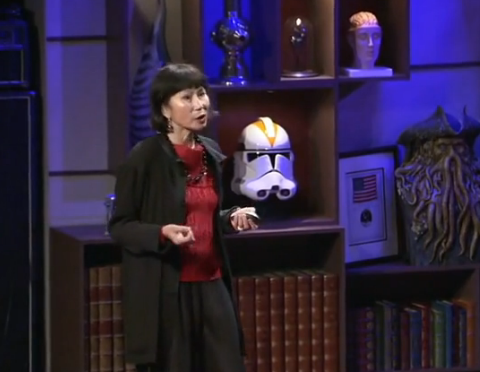Now, what's encapsulated in both these drowning metaphors -- actually, one of them is my mother's interpretation,
暗藏在這兩個溺水故事中的比喻是其中一個說法來自我母親,
and it is a famous Chinese saying, because she said it to me: "save a man from drowning, you are responsible to him for life."
中國人常說的“救一個溺水者,你便得為他的一生負責。”
And it was a warning -- don't get involved in other people's business, or you're going to get stuck. OK.
那是一種警告:別管別人的閑事,免得被纏上,
I think if somebody really was drowning, she'd save them.
但我想如果真的有人溺水的話,她還是會救他們的。
But, both of these sayings -- saving a fish from drowning, or saving a man from drowning -- to me they had to do with intentions.
但這兩種說法,不管是救溺水的魚,還是溺水的人,這取決與你的意圖。
And all of us in life, when we see a situation, we have a response. And then we have intentions.
我們在人生中,都得對我們身邊發生的事情做出反應。懷抱著各自的意圖。

There's an ambiguity of what that should be that we should do, and then we do something.
在我們應該做的和最后真正做了的兩者之間,有一些模棱兩可之處。
And the results of that may not match what our intentions had been. Maybe things go wrong.
而結果也不一定符合我們原本的意圖。說不定事情搞砸了。
And so, after that, what are our responsibilities? What are we supposed to do?
若當如此,我們的責任又在哪?我們該怎么做?
Do we stay in for life, or do we do something else and justify and say, well, my intentions were good,
我們該留下來負責還是嘗試合理化我們的行為,說,我的本意是好的,
and therefore I cannot be held responsible for all of it?
所以我不應當負全責?
That is the ambiguity in my life that really disturbed me, and led me to write a book called "Saving Fish From Drowning."
這便是我人生中很難接受的模棱兩可,甚至讓我因此寫了本書,就叫做《救一只溺水的魚》。











